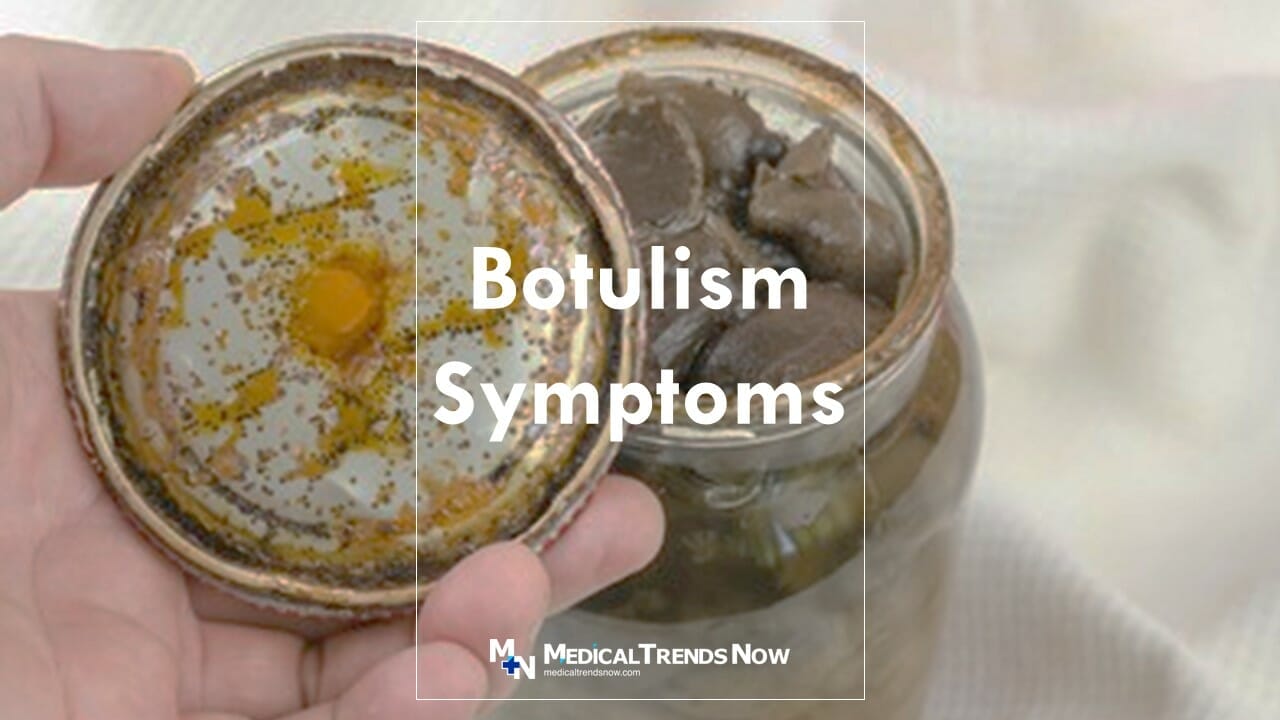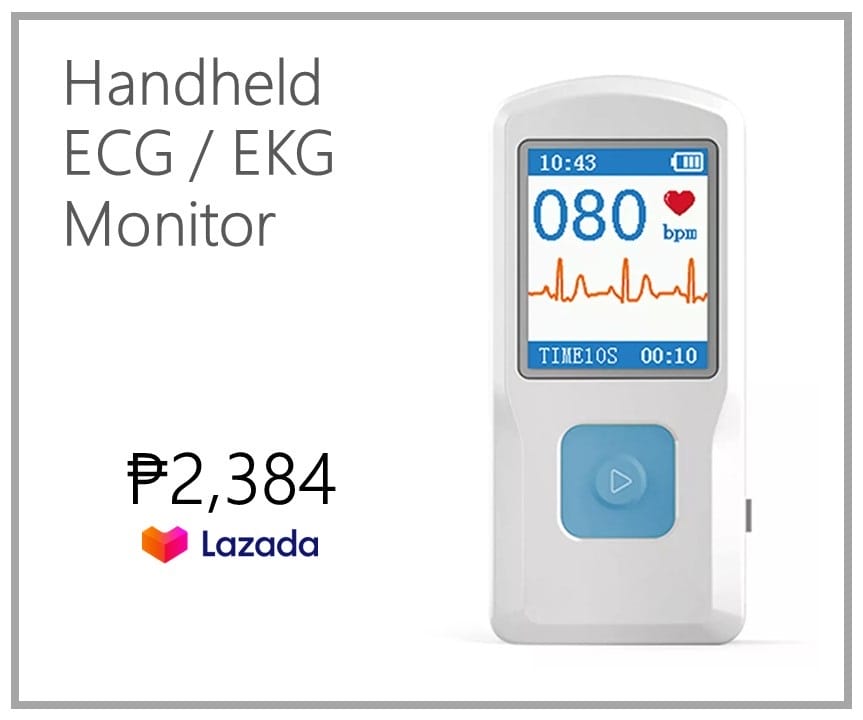Table of Contents
Botulism is a rare but serious condition that can cause paralysis in adults and children. Here are some things you should know about botulism symptoms, risks, and complications.
Botulism is a potentially fatal illness caused by a toxin produced by the bacteria Clostridium botulinum. Botulism Symptoms can vary depending on the form of botulism, but all forms can cause serious complications if not treated quickly and correctly. It is important for medical professionals to be familiar with the signs and symptoms of this silent killer in order to diagnose and treat patients as soon as possible properly.
What Is Botulism?
A toxin that targets the body’s nerves causes the rare but dangerous illness known as botulism. Botulism symptoms may be fatal. The toxin is created by a kind of bacteria known as Clostridium botulinum. Food or wound contamination can lead to botulism. The disease may also manifest in babies with bacterial spore growth in their intestines. Rarely, medical procedures or bioterrorism can also result in botulism.
The spores need the following conditions to develop and produce toxins:
- Anaerobic (low-oxygen or without oxygen) environment
- Little Sugar
- Weak Acid
- Given the amount of water
- Specified temperature range
For instance, foods that have been inadequately home-canned, preserved, or fermented can create the ideal environment for spores to develop and produce botulinum toxin. If they don’t receive prompt medical attention after consuming these items, people risk developing severe illnesses or possibly death.
Botulism is a potentially fatal form of food poisoning, and it is important for everyone to be aware of the symptoms in order to be able to recognize this silent killer. Botulism symptoms occur when the bacteria Clostridium botulinum enters the body through contaminated food or through an open wound. It then produces a toxin that affects the nervous system, leading to serious and sometimes life-threatening symptoms.
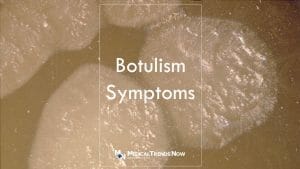
Types of Botulism
There are five types of botulism:
1. Infant Botulism
This most common type of botulism starts when bacteria from the Clostridium botulinum genus proliferate in a baby’s intestinal system. Babies between the ages of 2 and 8 months frequently experience it. Adults can occasionally develop this type of intestinal botulism.
Infant botulism is a rare but serious illness caused by a type of bacteria. This bacterium releases toxins in the body, leading to physical and neurological symptoms that can be life-threatening if left untreated. It is important for parents and caregivers to understand the signs of infant botulism so they can seek medical help immediately.
Infants who have contracted botulism may display weak or floppy muscles, appear lethargic or extremely sleepy, have trouble feeding or show weakness when sucking, exhale with a “sighing” sound between sucking and swallowing during feedings, have difficulty controlling their head movements, and be unable to focus their eyes on an object. Additionally, they may suffer from constipation or develop a dry skin rash due to lack of sweating.
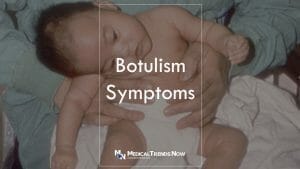
2. Food-borne Botulism
Eating foods that have been tainted with botulinum toxin can result in food-borne botulism. Homemade foods that have been inadequately canned, preserved, or fermented are common sources of food-borne botulism. Store-bought goods can also be tainted with botulinum toxin, though this is rare.
Botulism symptoms can range from mild to severe and, in some cases, may be fatal. It is important for individuals to recognize the symptoms of food-borne botulism so they can seek medical help immediately should they experience any of these signs. Common symptoms include dry mouth, difficulty swallowing, facial weakness on both sides of the face, drooping eyelids and blurred or double vision, slurred speech, and difficulty breathing due to muscle weakness in the chest wall muscles. In infants younger than 12 months old, poor feeding due to weakened sucking or tongue movement may occur. In severe cases, paralysis of the arms, legs as well as respiratory muscles can occur, leading to life-threatening complications requiring ventilation support and intensive medical care.
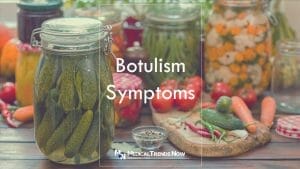
3. Wound Botulism
If the bacteria’s spores enter a wound and produce a toxin, it can result in wound botulism. The likelihood of developing wound botulism is higher in drug injectors. A traumatic injury, such one sustained in a motorbike accident or surgery, might lead to wounding botulism in certain people.
Wound botulism is an uncommon but serious bacterial infection caused by the bacteria Clostridium botulinum. It affects individuals who have been infected with spores, which can be found in soil, dust, and decaying vegetation. Symptoms of wound botulism include weakness, blurred or double vision, drooping eyelids, slurred speech, and difficulty swallowing. If left untreated, these symptoms can progress to paralysis and even death.
It is important to be aware of the signs and symptoms associated with wound botulism so that prompt medical attention can be sought if necessary. Some people may experience headaches, nausea, or vomiting along with muscle weakness as initial symptoms of this potentially fatal condition. In some cases, there may also be changes in mental status, such as confusion, memory loss, or impaired judgment – all potential indicators that something more serious could be occurring.

4. Iatrogenic Botulism
Iatrogenic botulism can occur when too much botulinum toxin is injected for either aesthetic or medicinal purposes.
Botulism is a rare but serious paralytic illness caused by a nerve toxin produced by the bacteria Clostridium botulinum. It can cause life-threatening complications, so it’s important to understand the symptoms and seek medical attention immediately if they are observed.
Iatrogenic botulism is an especially dangerous form of the disease, as it occurs when someone is injected with a large dose of toxin from an external source. Common iatrogenic botulism symptoms include difficulty speaking or swallowing, dry mouth, vision problems such as double vision or blurred vision, and muscle weakness that progresses from the head to other parts of the body. Patients may also experience fatigue and changes in mood or cognition; difficulty breathing, urinating, or moving; and nausea or vomiting in severe cases.
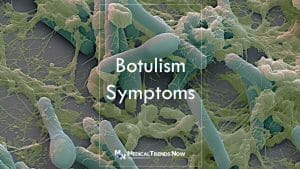
5. Adult Intestinal Toxemia
A relatively rare type of botulism called adult intestinal toxemia, also known as adult intestinal colonization, can occur when the spores of the bacterium enter the adult’s intestines, develop, and generate the toxin (similar to infant botulism). Although the cause of this type of botulism is unknown, those who suffer from severe gastrointestinal illnesses may be more susceptible to becoming ill.
Intestinal toxemia is a serious medical condition that can affect adults, causing symptoms of botulism. It is caused by the presence of toxin-producing bacteria in the intestinal tract. This type of infection can lead to severe illness and be fatal if left untreated.
Botulism symptoms of adult intestinal toxemia will vary depending on the type and severity of the bacterial infection. Commonly associated with botulism, an adult may experience fatigue, blurred vision, muscle weakness or paralysis, difficulty breathing or swallowing, and nausea or vomiting. If any combination of these symptoms exists it is important to seek medical attention right away as this could signify a more serious underlying condition such as bacterial toxemia.
Early diagnosis and treatment are essential for preventing further complications from developing due to this potentially life-threatening condition.
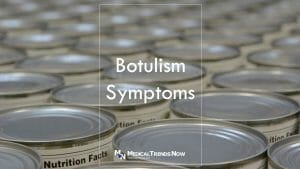
What Are The Botulism Symptoms?
Botulism symptoms are often misunderstood and are potentially fatal illnesses caused by a toxin produced by the bacterium Clostridium botulinum. It is usually contracted through contaminated food, and its symptoms can be difficult to identify. This article will discuss the signs and symptoms of botulism in detail, emphasizing the importance of early diagnosis and treatment.
The following are botulism symptoms:
1. Infant Botulism Symptoms
- Constipation is frequently the first botulism symptom.
- Sloppy movements brought on by weakened muscles and difficulty regulating the head
- Weepy cry
- Irritability
- Drooling
- Reduced eyelid vigor
- Fatigue
- Difficulty feeding or sucking
- Paralysis
There are certain botulism symptoms that are uncommon. As an illustration, botulism symptoms typically do not increase blood pressure or pulse rate or induce a temperature or confusion. However, wound botulism can occasionally result in fever.
After the toxin reaches the baby’s body, problems typically start 18 to 36 hours later.
![Ciprofloxacin 500mg 1 Tablet [PRESCRIPTION REQUIRED] Watsons Pharmacy](https://e52hyu4yuyt.exactdn.com/wp-content/uploads/2022/12/WATSONS-Ciprofloxacin-500mg-1-Tablet-PRESCRIPTION-REQUIRED-Watsons-Pharmacy-300x300.webp?strip=all&lossy=1&ssl=1)
2. Food-borne Botulism Symptoms
- Inability to speak or swallow
- Oral aridity
- Facial weakness.
- Hazy or double vision
- Dropped eyelids
- Respiratory difficulty
- Stomachache
- Nausea
- Vomiting
- Paralysis
12 to 36 hours after ingesting the toxin, food-borne botulism symptoms often appear. However, the commencement of botulism symptoms might occur anywhere between a few hours and a few days, depending on how many toxins you ingest.
![FLAGYL Metronidazole 125mg5mL Oral Suspension 60mL [PRESCRIPTION REQUIRED] Watsons Pharmacy](https://e52hyu4yuyt.exactdn.com/wp-content/uploads/2022/12/FLAGYL-Metronidazole-125mg5mL-Oral-Suspension-60mL-PRESCRIPTION-REQUIRED-Watsons-Pharmacy-300x300.webp?strip=all&lossy=1&ssl=1)
3. Wound Botulism Symptoms
- Difficulty speaking or swallowing
- Weakness on both sides of the face’s facial muscles
- Double or blurry vision
- Sagging eyelids
- Difficulty breathing
- Paralysis
About ten days after the toxin enters your body, wound botulism symptoms start to manifest. It’s possible that the region surrounding the wound doesn’t always look swollen and change color.
![AUGMENTIN Co-Amoxiclav 1gm antibiotic Tablet [PRESCRIPTION REQUIRED] - Watsons Pharmacy](https://e52hyu4yuyt.exactdn.com/wp-content/uploads/2022/10/AUGMENTIN-Co-Amoxiclav-1gm-antibiotic-Tablet-PRESCRIPTION-REQUIRED-Watsons-Pharmacy-300x292.jpg?strip=all&lossy=1&ssl=1)
4. Iatrogenic Botulism Symptoms
There have been a few rare cases of major adverse effects in iatrogenic botulism, which happens when the toxin is injected for cosmetic or medicinal purposes. Headache, facial paralysis, and muscle weakness are a few of these.
Take note that not everyone who has botulism will experience all of these botulism symptoms at once.
The toxin’s effects on the muscles result in all of the botulism symptoms. If left untreated, the illness could deteriorate, and the botulism symptoms could lead to the complete paralysis of several muscles, particularly those involved in breathing and those in the arms, legs, and trunk or torso.
![Amoxicillin 500mg Capsule [PRESCRIPTION REQUIRED] - Watsons Pharmacy](https://e52hyu4yuyt.exactdn.com/wp-content/uploads/2022/10/WATSONS-Amoxicillin-500mg-Capsule-PRESCRIPTION-REQUIRED-Watsons-Pharmacy-300x300.webp?strip=all&lossy=1&ssl=1)
Who Are At Risk for Botulism?
You are more likely to contract botulism if you take certain actions:
- People who inject narcotics like black tar heroin run a higher chance of developing wound botulism.
- People who consume particular types of homemade alcohol, such as inmates who consume “hooch” or “pruno” produced inside jails, are more likely to have food-borne botulism.
- They may be more susceptible to developing iatrogenic botulism if the dose they receive is too high, if they are children or weigh less than the average adult, if they have an underlying nerve or muscle condition, or if they receive botulinum toxin injections for cosmetic (such as wrinkle reduction) or medical (such as migraine headache relief) reasons.
- People who consume improperly prepared home-canned or home-fermented foods have a higher risk of developing serious illnesses. Many home-canned vegetables and meats, as well as conventional fermented foods, may be among these foods.
How is Botulism Diagnosed?
Botulism is diagnosed through a combination of clinical symptoms and laboratory testing. The first step is to take a detailed medical history, including any recent exposures to contaminated food or wounds. A physical examination will be conducted to look for signs of muscle weakness and paralysis. Laboratory tests can then be performed to confirm the diagnosis, such as detecting the botulinum toxin in the patient’s blood or stool sample.
How Is Botulism Treated?
In cases of food-borne botulism, medical professionals may induce vomiting and administer medications to aid in bowel movement in order to cleanse the digestive tract. A surgeon might need to remove infected tissue if you have wound botulism.
As the toxin is absorbed by the body, botulism symptoms brought on by botulinum toxin injections for aesthetic or medicinal purposes typically get better.
1. Anti-toxin
Injected antitoxin reduces the risk of complications if you are diagnosed with food-borne or wound botulism early. A toxin that is traveling through your bloodstream bonds to the antitoxin preventing it from damaging your nerves; However, damage done already cannot be undone by the antitoxin.
On the good side, nerves are able to regenerate, which makes a lot of people fully recover. However, healing can take several months and frequently needs long-term rehabilitation therapy. Babies are treated with a distinct kind of antitoxin called botulism immune globulin.
![Amoxicillin 500mg Capsule [PRESCRIPTION REQUIRED] - Watsons Pharmacy](https://e52hyu4yuyt.exactdn.com/wp-content/uploads/2022/10/WATSONS-Amoxicillin-500mg-Capsule-PRESCRIPTION-REQUIRED-Watsons-Pharmacy-300x300.webp?strip=all&lossy=1&ssl=1)
2. Respiratory Aid
For up to many weeks while your body battles the toxin’s effects, you probably require a mechanical ventilator if you’re suffering from breathing problems. By inserting a tube through your nose or mouth into your airway, the ventilator pushes air into your lungs.
3. Antibiotics
Additionally advised for the treatment of wound botulism are antibiotics. Due to their potential to hasten the release of toxins, these medications are not used to treat other types of botulism.
4. Therapy
Therapy to enhance your speech, swallowing, and other botulism-affected functions might also be necessary as you heal.
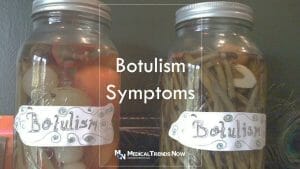
How Can You Prevent Botulism?
1. Infant Botulism
Honey should not be given to infants under the age of 12 months because it may contain the bacteria that cause infant botulism. Anyone above the age of one can safely consume honey.
2. Food-borne Botulism
Many occurrences of foodborne botulism have been linked to the consumption of tainted home-canned, preserved, or fermented foods. If the items weren’t properly canned (processed), they might have become infected.
The most frequent causes of botulism illnesses linked to home canning are foods with low acid content. Foods that are low in acid include beans, beets, asparagus, potatoes, and corn.
Botulism associated with food continues to have new sources discovered. Food contamination can occur when it is handled carelessly during production, storage, or consumer usage. Several instances of tainted foods include:
- Garlic chopped and in oil
- Prepared cheese sauce
- Packaged tomatoes
- Carrot juice
- Foil-wrapped baked potatoes
To ensure that botulism germs are eliminated when preserving food at home, use the right procedures. Additionally, it’s critical to prepare and store food correctly:
- Home canned foods should be pressure cooked for 20 to 100 minutes, depending on the food, at 250 degrees Fahrenheit (121 degrees Celsius).
- Before serving, consider giving these foods a 10-minute boil.
- If the food’s container is overflowing or it smells terrible, avoid eating preserved foods. However, C. botulinum may not always be detectable by taste or smell. Some strains don’t alter the flavor or aroma of food.
- Eat potatoes hot if you bake them in foil first. Instead of keeping the potatoes at room temperature, loosen the foil and place them in the refrigerator.
- Keep homemade oils that have been infused with herbs or garlic in the refrigerator. After four days, dispose of them.
- After opening canned goods, put them in the fridge.
3. Wound Botulism
Never inject or inhale street drugs to avoid wound botulism and other severe blood-borne illnesses. Keep cuts and scrapes clean to avoid infection. Seek medical attention as soon as possible if you suspect an infection in a wound.
4. Iatrogenic Botulism
If you need any cosmetic or medical operations employing different types of botulinum toxin, make sure to visit a licensed healthcare professional to avoid contracting iatrogenic botulism. They consist of abobotulinumtoxin A, onabotulinumtoxin A, and other substances.
5. Adult Intestinal Colonization
Botulism of the adult intestinal variety, also known as adult intestinal toxemia, is extremely uncommon.
People who have medical disorders that affect the structure or normal operation of their intestines (gut) may be more susceptible. Adult intestinal toxemia has only been identified in a small number of patients, and researchers are still unsure of the exact mechanism of transmission. It might be comparable to baby botulism, which is unpreventable.
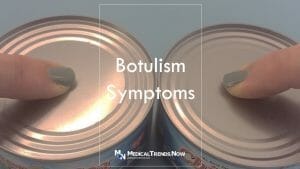
Botulinum Toxin as Bioterrorism Agent
Botulism is a condition brought on by a toxin produced by specific kinds of bacteria. The poison is known as botulinum toxin, one of the most deadly poisons ever discovered.
Despite being widespread in nature, the bacteria that produce this toxin rarely cause illness in humans. The toxin might be employed in a biological assault, though. A biological attack is the deliberate release of pathogens or the toxins they produce, which can infect or kill humans, animals, or crops. The botulism toxin was produced by some nations with biological weapons programs. Ineffective attempts have been made by some organizations to hurt people purposefully by using the toxin.
Health officials are aware that a biological attack may use the toxin. To prepare for the possibility of a biological strike, they research the poison and the illness it causes.
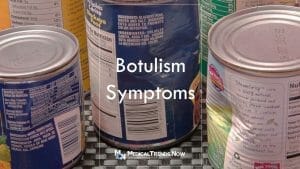
What If I Have Been Injured by Botulinum Toxin?
If you have been injured by botulinum toxin, it is important to seek medical attention immediately. Botulism can be a very serious condition and can lead to paralysis and even death if not treated promptly. There are a number of different ways to treat botulism, so it is important to get to a medical facility as soon as possible so that you can receive the proper treatment.
Type of Specialist Doctor That Can Treat Botulism
The type of specialist doctor who would treat botulism depends on the severity of the case. In mild cases, a primary care physician or family practitioner may be able to handle it; however, for more serious cases involving paralysis or impaired motor function, it will require an infectious disease specialist or neurologist to manage treatment. In addition to these medical professionals, physical therapists may also be required to help the patient regain their strength after treatment.
Summary: Botulism Symptoms
As you can see, knowing the botulism symptoms is essential for avoiding this potentially fatal disease. If you or someone you love has been diagnosed with botulism, please seek medical attention immediately.
In conclusion, botulism is a serious health hazard, and prevention is key. It is important to understand botulism symptoms and signs in order to protect yourself and your family. If you experience any of the symptoms outlined above, or if you suspect someone has been exposed to Clostridium botulinum, seek medical attention immediately. Vaccines are available for some forms of botulism to help prevent infection, so be sure to discuss this with your healthcare provider.
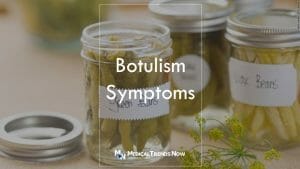
Sources: Botulism Symptoms
- Botulism – Diagnosis and treatment – Mayo Clinic
- Diagnosis and Treatment | Botulism – CDC
- Botulism: Types, Causes, Symptoms & Treatments – Cleveland Clinic
- Medical treatment for botulism – PMC – NCBI
- Symptoms | Botulism – CDC
- Botulism – Symptoms and causes – Mayo Clinic
- Infant Botulism (for Parents) – Nemours KidsHealth
- Botulism – NORD (National Organization for Rare Disorders)
- Home Canning and Botulism | CDC
- Clostridium botulinum & Botulism – US Department of Agriculture, FDA
- What You Need to Know About Botulism – WSU Extension
- Botulism Fact Sheet – OKC-County Health Department
- Botulism: Clinical Description – CDC Emergency Preparedness
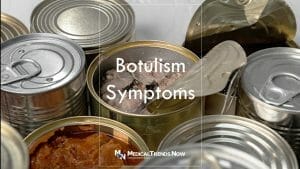
Botulism Symptoms: The Silent Killer.
Disclaimer
This website is intended to educate both members of the general public and those working in the medical field on the prevalence, causes, and methods for preventing, diagnosing, and treating diseases that affect people throughout their lives. This website’s content is provided solely for informational reasons and is not meant to serve as a substitute for the advice of a qualified medical practitioner.

